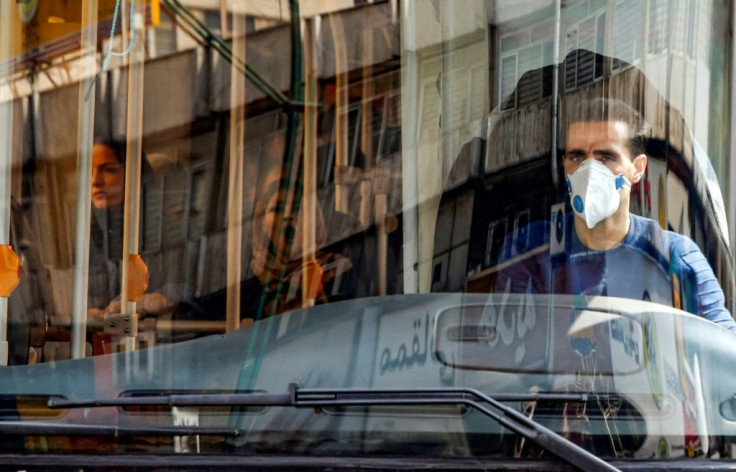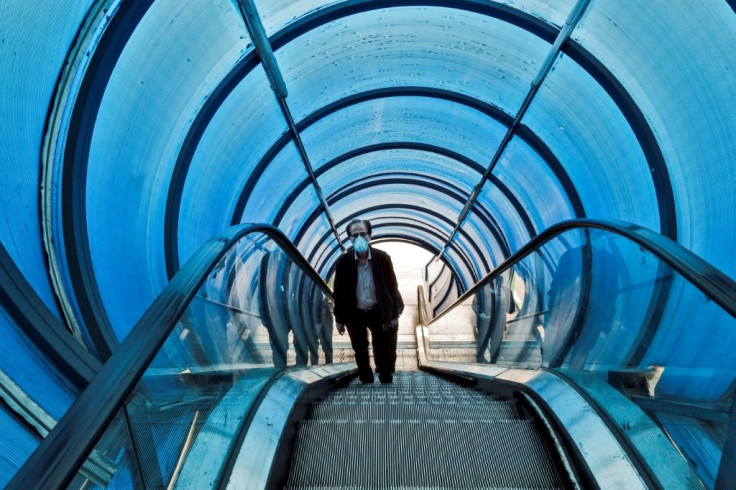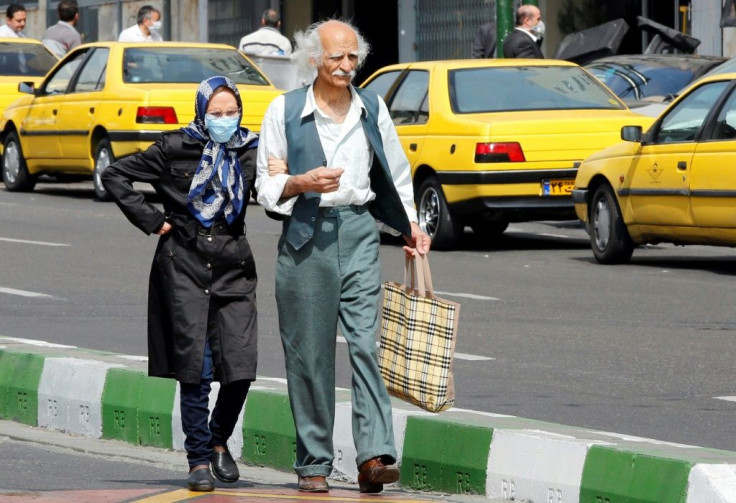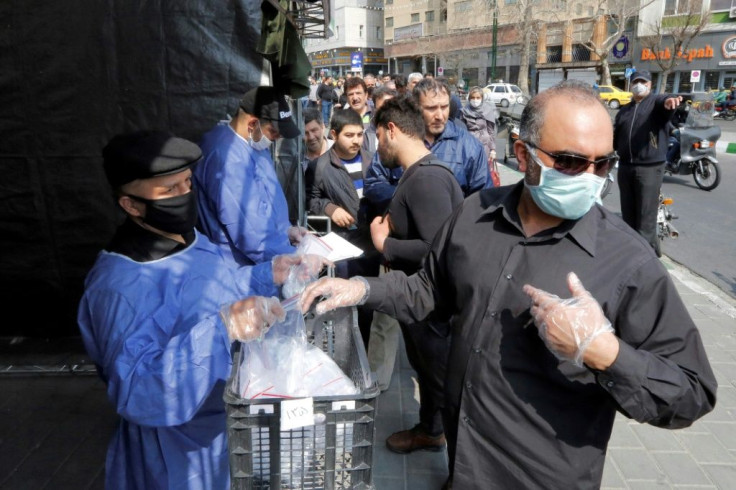Iran Closes Key Religious Sites As Virus Death Toll Hits 853

Iran on Monday closed four key Shiite pilgrimage sites to stop a coronavirus outbreak that has killed over 850 people out of nearly 15,000 cases recorded in the Islamic republic.
The holy shrines of Imam Reza in Mashhad, Fatima Masumeh in Qom and Shah Abdol-Azim in Tehran were shut until further notice "upon the orders of the anti-coronavirus headquarters and the health minister," state television said.
Qom's Jamkaran mosque also said it would close its doors, the official IRNA news agency reported.
People angry over the decision protested outside Qom's Fatima Masumeh shrine, some chanting "religious slogans" and damaging the entrance door, IRNA reported.
The coronavirus outbreak has spread to all of Iran's 31 provinces since it first emerged last month in Qom, which is among the worst-hit regions along with Tehran and Khorasan Razavi, where Mashhad is located.
Health Minister Saeid Namaki said the shrines and "other holy sites" had agreed to close until after the New Year holidays, which start on Friday.
The move came after Iran said the COVID-19 disease killed another 129 people, taking the country's overall toll to 853 dead out of 14,991 cases of infection.
"Our plea is that everyone take this virus seriously and in no way attempt to travel to any province," health ministry spokesman Kianoush Jahanpour said.

The disease has now killed at least 12 Iranian politicians and officials, both sitting and former, and infected 13 more who have either been quarantined or are being treated.
The latest was Ayatollah Hashem Bathayi Golpayegani, a member of the Assembly of Experts -- an 88-strong body of clerics that appoints and monitors the country's supreme leader.
The ayatollah, who was 78, died two days after testing positive for the disease and being hospitalised, state news agency IRNA reported.
The novel coronavirus also claimed the life of prominent economist and political activist Fariborz Rais-Dana on Monday.

A prolific writer with a PhD from the London School of Economics, he had spent time in prison after being convicted of spreading propaganda against the system.
Iran has been scrambling to contain the rapid spread of COVID-19 since the authorities announced the first two deaths in Qom on February 19.

It has since shut schools, postponed cultural and sports events and discouraged travel ahead of the New Year holidays.
Iran has also cancelled the main weekly Friday prayers, closed parliament and put off the second round of legislative elections.
In addition, the judiciary has sent 83,000 inmates on temporary leave from jails, apparently over concerns of the virus spreading in the prison system.
But Iran has yet to impose a lockdown, and the official number of deaths and infections has continued to grow exponentially.
According to the health ministry, the rising trend is due to the increasing number of tests being carried out.
It says many patients started showing symptoms days after they were infected.
Official tolls, which are given every 24 hours, have usually lagged behind reports by local media and have sometimes been contradicted by provincial authorities.
President Hassan Rouhani reiterated his call for people to refrain from travelling.
Speaking in a videoconference with Iran's anti-coronavirus headquarters in Tehran, he expressed hopes the outbreak would soon be brought under control.
"God willing, this year-end will go down in history... as days of victory over this dangerous virus," he said.
But the head of a Tehran hospital said he was doubtful the virus could be contained without more stringent measures.
"We are told by the people that you want us to stay home, but how can we when (government) organisations are not closed?" said Alireza Zali of the Shahid Beheshti medical university.
"We should not be confusing people," he was quoted as saying by ISNA news agency, adding that many vulnerable groups such as pregnant women and those with autoimmune diseases were not given leave from work.
The health ministry's latest figures showed that Tehran province had the highest number of new infections with 200 cases.
The central province of Isfahan followed with 118 cases, with Mazandaran in the north of Iran coming next with 96.
© Copyright AFP {{Year}}. All rights reserved.





















